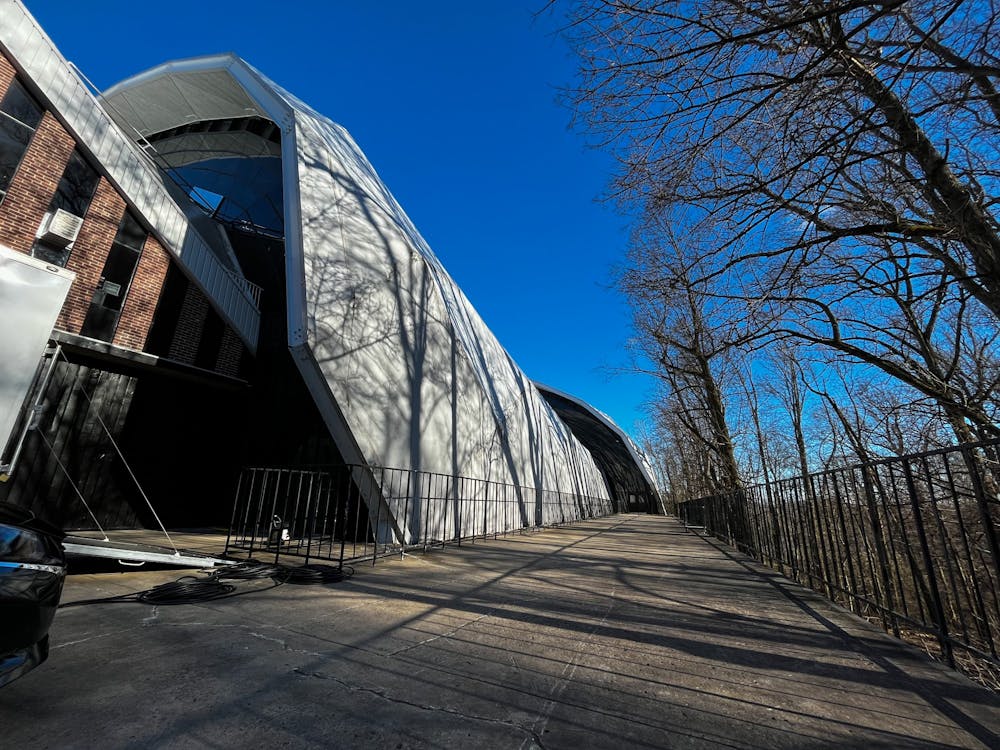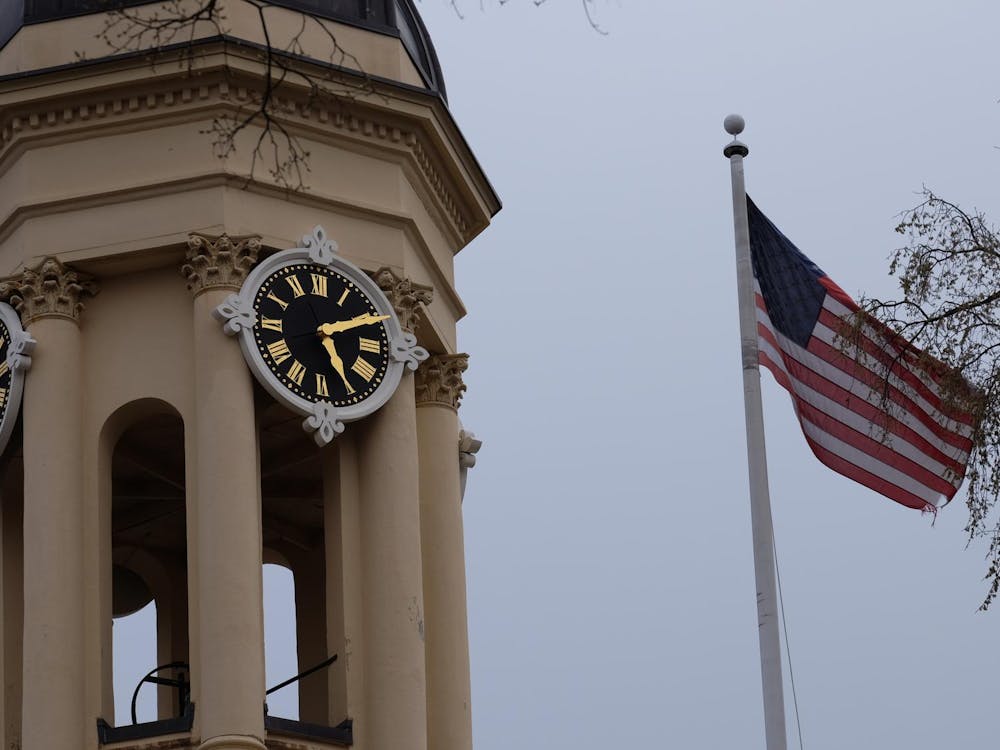The expiration of Section 568 of the Improving America’s Schools Act of 1994 has raised one question: what is the fate of athletic scholarships in the Ivy League, especially here at Princeton? Proponents of compensating student-athletes generally cite the immense difficulty of performing well physically, academically, and mentally, and argue that it is exploitative to withhold fair compensation from the very students generating national attention and revenue for their universities.
Compensating student-athletes via athletic scholarships undermines the importance of need-based aid and presents a model for student-athletes that is far more athlete than it is student. In addition to its regular need-based financial aid, Princeton ought to provide every student with an extra-curricular activity stipend to compensate them for their contributions to the University and allow for greater flexibility in exploring their non-academic interests.
Princeton has found itself in a difficult legal position. In 1991, when all members of the Ivy League were found to have violated federal antitrust laws, all eight schools signed a consent agreement agreeing to not collaborate on tuition and financial aid methodology. While the Ivy League gave in, MIT pushed the question, insisting that with need-blind financial aid, they had the right to coordinate with other schools. The Justice Department eventually conceded and dismissed the case against MIT on the basis of protecting need-based financial aid. Soon after, Section 568 of the Improving America’s Schools Act of 1994 secured the Ivy League an exemption to antitrust conspiracy, providing students were admitted need-blind.
This exemption expired in September, however. Furthermore, pressure has mounted against the Ivy League in recent years — especially as their tuitions continue to inexplicably rise to nearly six figures despite “ballooning” endowments — to approach antitrust more cautiously and compensate athletes more appropriately.
National Collegiate Athletic Association v. Alston et al. (Alston) provides a legal basis, with Justice Kavanaugh writing in his concurring opinion: “Nowhere else in America can businesses get away with agreeing not to pay their workers a fair market rate on the theory that their product is defined by not paying their workers a fair market rate.” Alston established that the NCAA may not limit education-related compensation — such as computers and books — for student-athletes. Another case, Henry et al. v. Brown University et al., asserts that the seventeen colleges named in the suit, six of which are members of the Ivy League, participated in a “price-fixing cartel.”
Most recently, two plaintiffs, current Brown University women’s basketball player Grace Kirk and former Brown men’s basketball player Tamenang Choh, have filed a class action lawsuit against the Ivy League and its members, alleging their withholding of athletic scholarships is illegal. These collusion accusations may force the Ivy League — and by extension, Princeton — to embrace athletic scholarships as a result. The Ivy League has already swiftly adopted its policy to allow student-athletes commercial rights to their name, image, and likeness (NIL). At Princeton, this policy has resulted in students already being afforded NIL contracts.
I believe students have a right to their NIL. It is blatantly unethical to suggest otherwise; students should enjoy both bodily autonomy and the right to financially gain from their NIL under the NCAA and University’s parameters.
But whether student-athletes should receive athletic scholarships is a completely different question. The push towards such a move is frankly concerning.

Firstly, financial aid should — on principle — never be dependent on demonstrated ability, especially at a university like Princeton with abundant financial resources and proven student ability. Students don’t need to keep proving themselves to earn a scholarship the University could afford to offer everyone.
Financial aid should not be contingent on a student’s continued involvement with past activities, interests, or sports either. Rather, the University should guarantee that students never have to fret about the cost of attendance during their time enrolled. It is only in this way that a student’s past and future involvement in extracurriculars may continue to deepen, and occasionally change, as they grow. Student-athletes should never worry that their financial ability to attend Princeton is conditional on their participation in athletics.
The push for student-athlete compensation, more generally, is also worrisome because it reduces the position of student-athletes to that of professional athletes who just happen to attend Princeton. Yes, the mental, physical, and time demands of student-athletes are significant when paired with the mental, physical, and time demands of being a Princeton student. But, the excessive time-commitment should highlight Princeton’s unrealistic expectations for athletes and how poorly it accommodates them, not demonstrate a need to stratify them to a wholly different class of student.
Paying student-athletes for their contributions to sports at Princeton is complicated. If students are paid in proportion to the revenue they generate for Princeton during conferences, it will be difficult to resolve Title IX violations of gender discrimination: men and women sports yield different revenue and investment, which would result in unequal pay for male and female athletes.

What about the value that low or zero-earning sports teams bring to Princeton? Do these athletes not also deserve compensation for their efforts? Moreover, the University’s reputation is not only bolstered by its athletic successes — what is to be done about the Rhodes scholars, researchers, and other University community members who may not be athletes, but contribute significantly to Princeton’s reputation and, consequently, its donorship?
What I suggest, then, is not that student-athletes should not be paid — their contributions are invaluable. Rather, all students should be paid in the form of an extracurricular activity stipend. This stipend, separate from the aid students receive through Princeton financial aid, would recognize and compensate for the time and effort needed to support student involvement in their non-academic activities. More importantly, this stipend would ensure students may explore the endless academic, artistic, and athletic opportunities the University offers them without contingency and instead with comfort.
It is likely that Princeton will have to grapple with providing athletic scholarships. In that decision, however, the importance of need-based financial aid and of recognizing the equality of other students — whose commitments may also be extensive and beneficial to the University — cannot be lost.
Christofer Robles is a sophomore from Trenton, N.J. He serves as an Assistant Opinion Editor and DEIB Committee Chair. Christofer can be reached at cdrobles@princeton.edu or on Instagram @christofer_robles.








